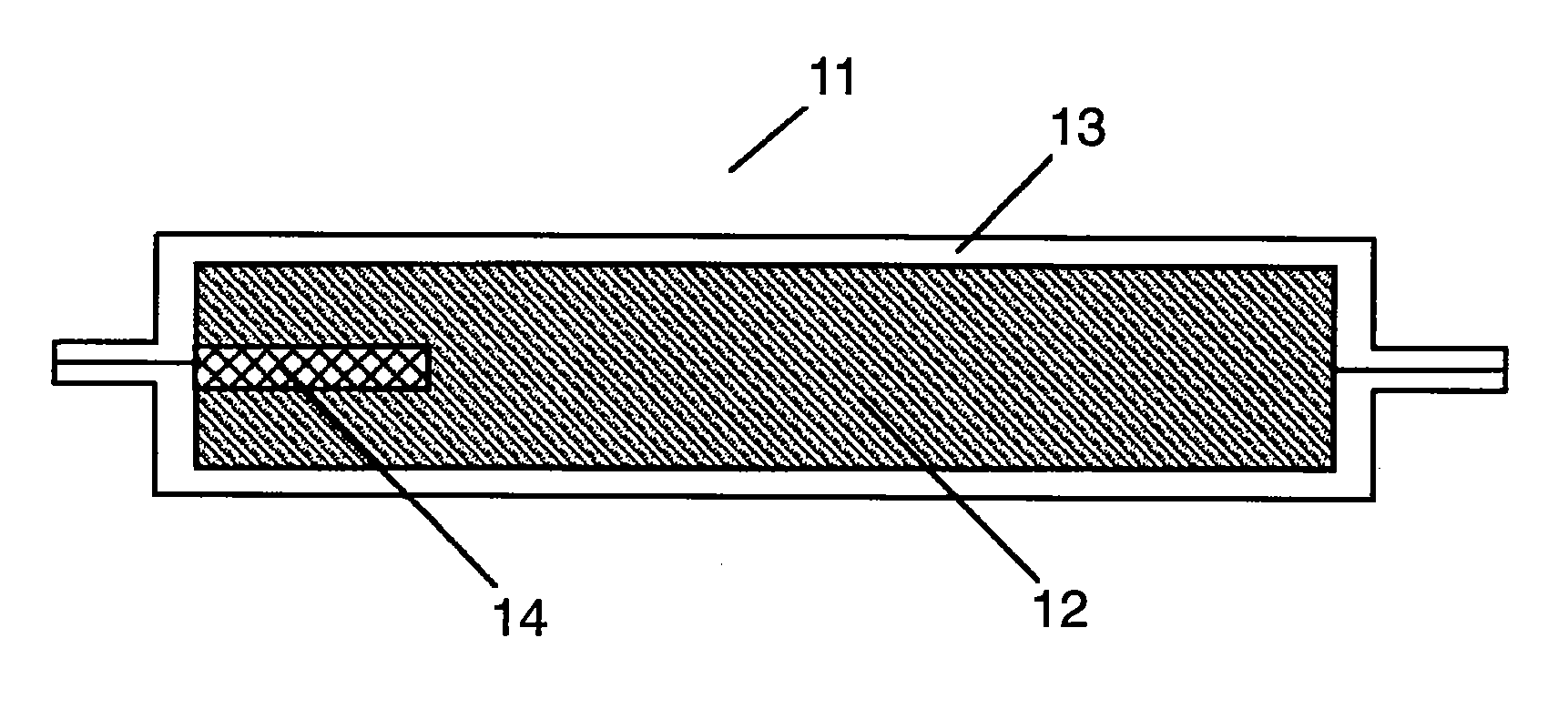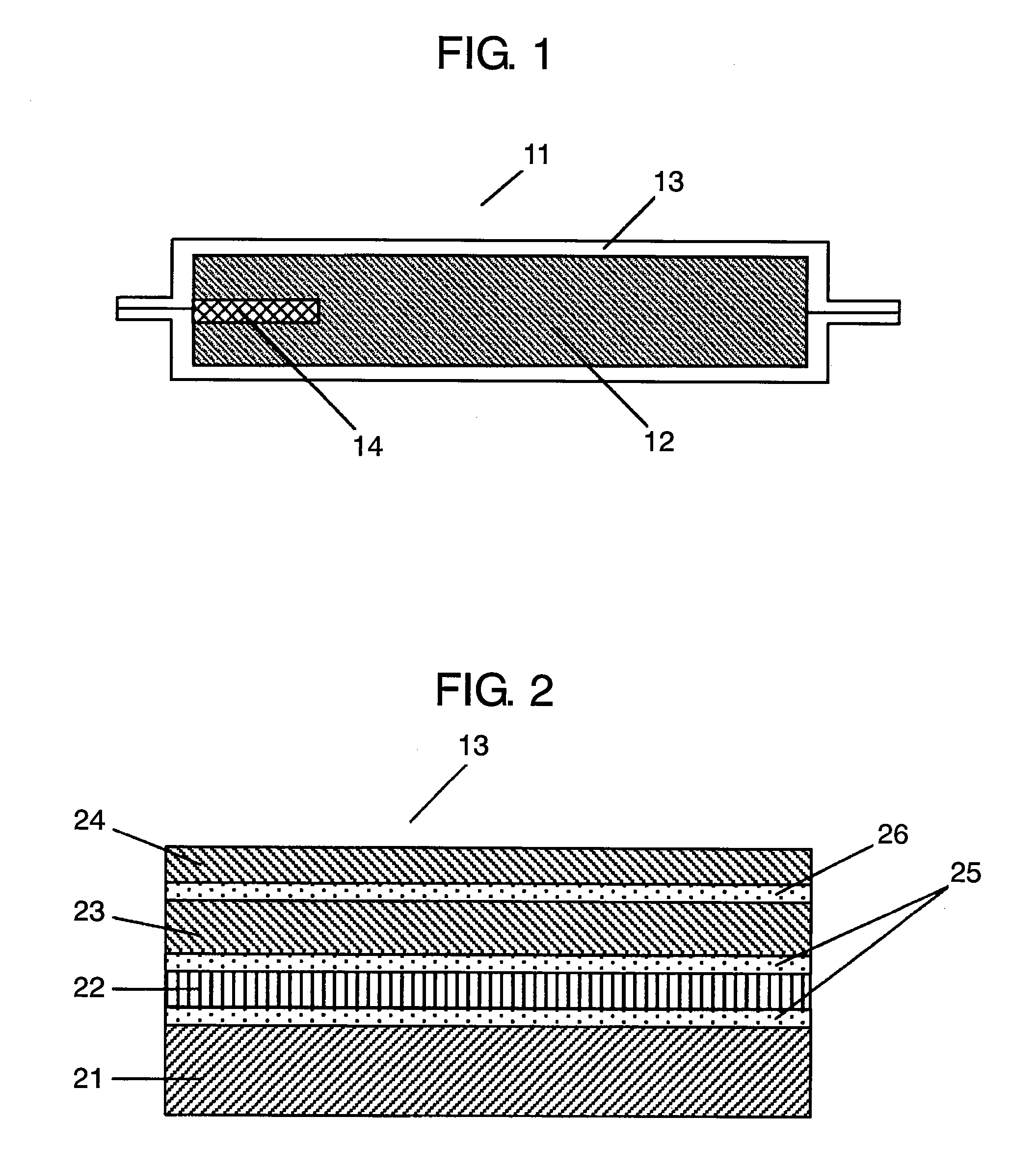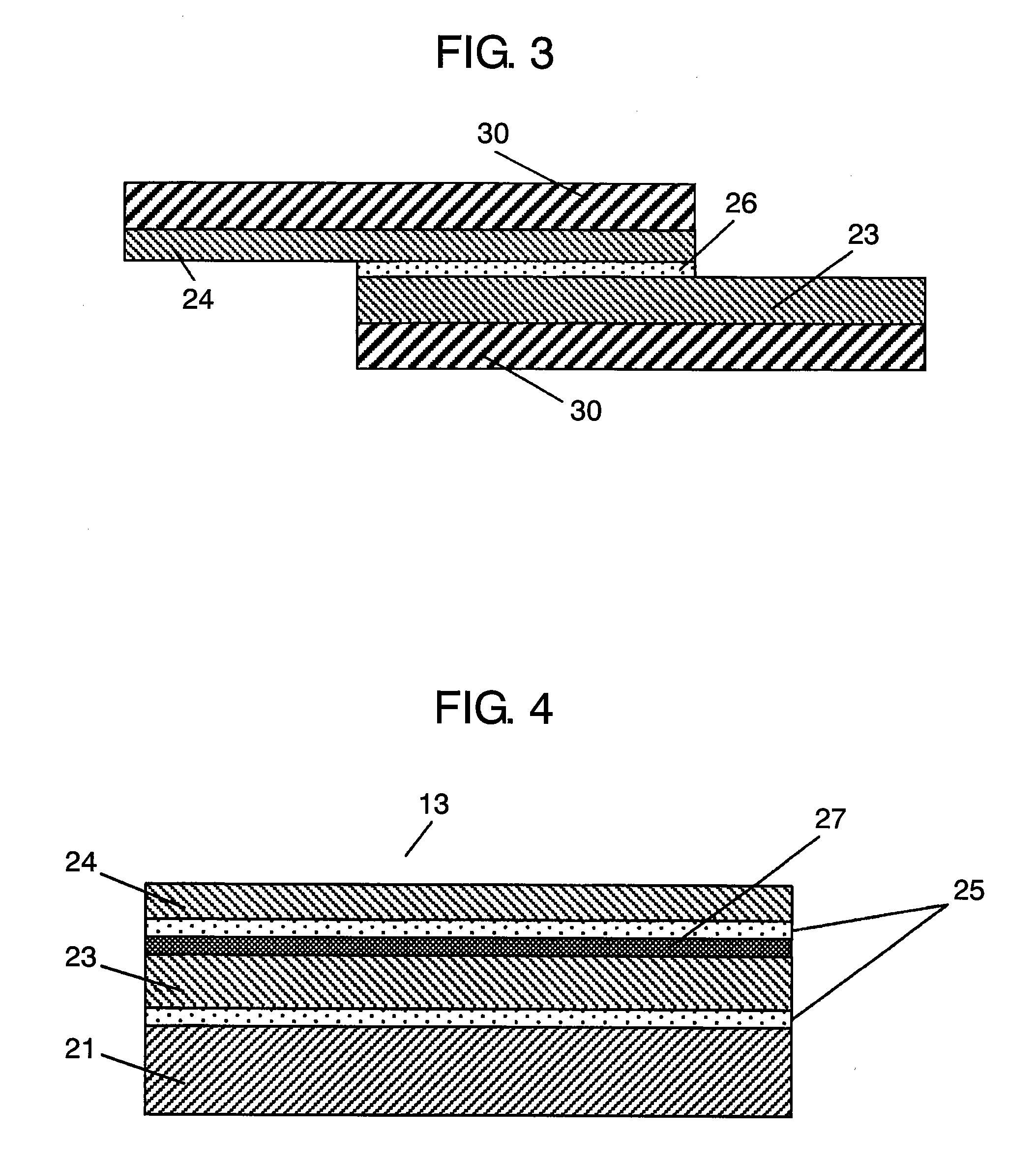Vacuum heat insulation material and cold reserving apparatus with the same
a vacuum heat insulation material and cold reserving technology, applied in the field can solve the problems of degradation of insulation performance, insufficient resistance of pinholes to insufficient improvement of pinhole resistance to pinholes that can damage the covering material of vacuum heat insulation materials, etc., to achieve excellent long-term insulation performance, excellent pinhole resistance, excellent gas barrier properties
- Summary
- Abstract
- Description
- Claims
- Application Information
AI Technical Summary
Benefits of technology
Problems solved by technology
Method used
Image
Examples
first exemplary embodiment
[0112]FIG. 1 is a sectional view of a vacuum heat insulation material of a first embodiment of the present invention. FIG. 2 is a sectional view of a covering material of the vacuum heat insulation material of the first embodiment of the present invention.
[0113] In FIG. 1, vacuum heat insulation material 11 is formed by inserting core material 12 and absorbent 14 into covering material 13 and then vacuuming covering material 13. More specifically, first of all, core material 12 is dried for 30 minutes in a drying furnace at 140° C. Three sides of a laminate film are heat-sealed so as to form covering material 13 into a bag shape. The dried core material 12 and absorbent 14 are inserted to covering material 13 thus formed into the bag shape, and covering material 13 is vacuumed in a vacuum chamber so as to have a pressure of not more than 13 Pa. Then, the opening is heat-sealed.
[0114] Covering material 13 used in the present first embodiment is a lamination body including sealant l...
second exemplary embodiment
[0139]FIG. 4 is a sectional view of a covering material of a second embodiment of the present invention.
[0140] In FIG. 4, covering material 13 of the present embodiment is a lamination body including sealant layer 21 formed of a 50 μm thick LLDPE film, first plastic film layer 23 formed of a 12 μm thick PET film, and second plastic film layer 24 formed of a 25 μm thick nylon film which are laminated in this order from inside to outside.
[0141] First plastic film layer 23 includes deposited layer 27 on a side opposite to second plastic film layer 24. The deposited film is formed by depositing aluminum as thick as 500 angstroms.
[0142] Sealant layer 21 and first plastic film layer 23 have first adhesive layer 25 disposed therebetween, and first plastic film layer 23 and second plastic film layer 24 also have first adhesive layer 25 disposed therebetween. These layers are dry laminated by a well-known method. As first adhesive layers 25, a well-known urethane adhesive is used.
[0143] ...
third exemplary embodiment
[0154]FIG. 5 is a sectional view of a covering material of a third embodiment.
[0155] In FIG. 5, covering material 13 is a lamination body including sealant layer 21 formed of a 50 μm thick LLDPE film, metal foil layer 22 formed of a 6 μm thick aluminum foil, first plastic film layer 23 formed of a 15 μm thick nylon film, and second plastic film layer 24 formed of a 25 μm thick nylon film which are laminated in this order from inside to outside.
[0156] First plastic film layer 23 and second plastic film layer 24 are formed as coextruded film layers 28 which are laminated by coextrusion.
[0157] Sealant layer 21 and metal foil layer 22 are bonded to each other with first adhesive layer 25 disposed therebetween, and metal foil layer 22 and first plastic film layer 23 are bonded to each other also with first adhesive layer 25 disposed therebetween. First adhesive layers 25 are made of a well-known urethane adhesive.
[0158] The vacuum heat insulation material of the present embodiment is...
PUM
| Property | Measurement | Unit |
|---|---|---|
| Pressure | aaaaa | aaaaa |
| Peel strength | aaaaa | aaaaa |
| Shear strength | aaaaa | aaaaa |
Abstract
Description
Claims
Application Information
 Login to View More
Login to View More - R&D
- Intellectual Property
- Life Sciences
- Materials
- Tech Scout
- Unparalleled Data Quality
- Higher Quality Content
- 60% Fewer Hallucinations
Browse by: Latest US Patents, China's latest patents, Technical Efficacy Thesaurus, Application Domain, Technology Topic, Popular Technical Reports.
© 2025 PatSnap. All rights reserved.Legal|Privacy policy|Modern Slavery Act Transparency Statement|Sitemap|About US| Contact US: help@patsnap.com



